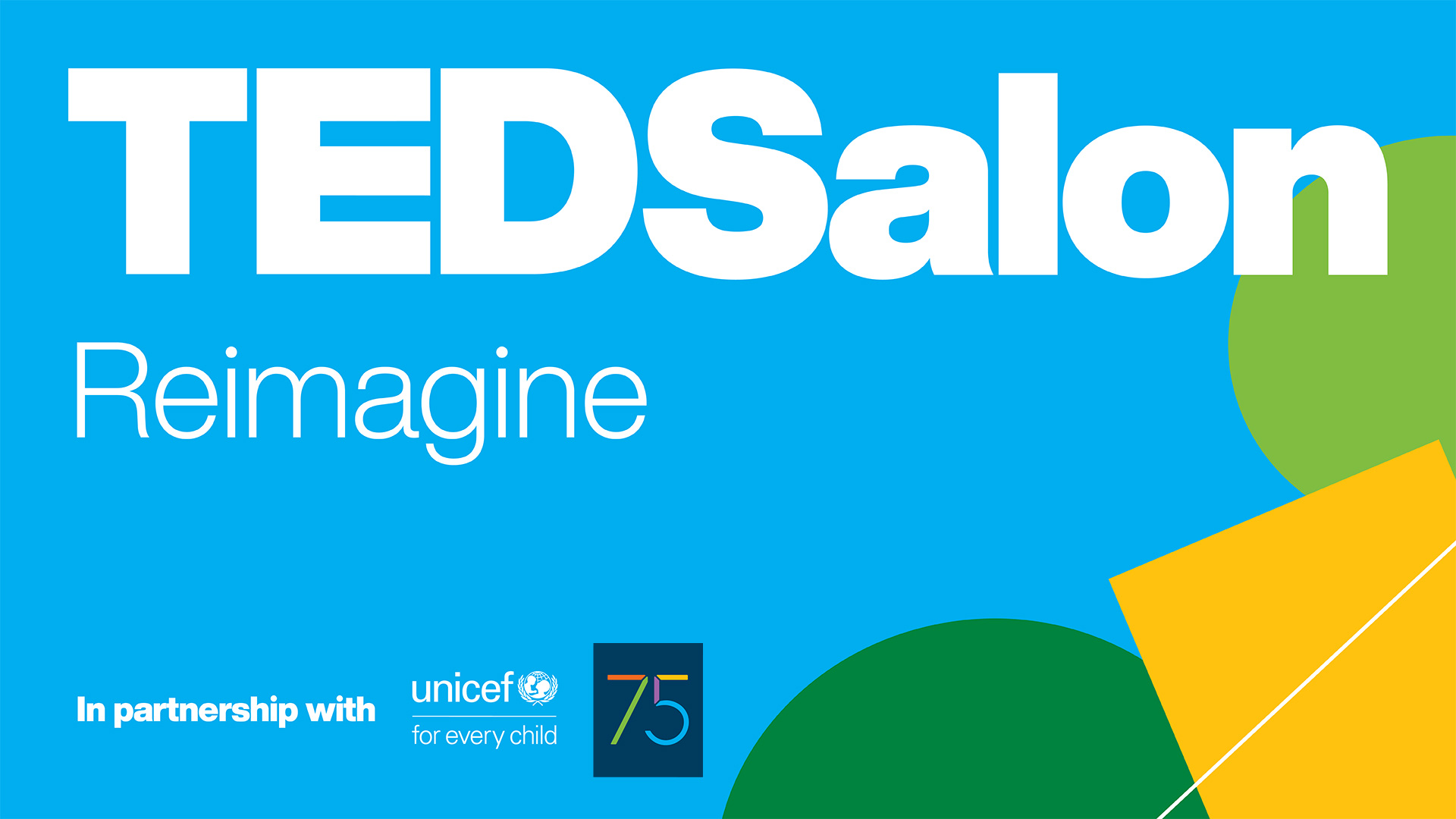
Young people across the world are reimagining the future and catalyzing the changes we need today. One thing is clear: we need to listen to youth voices now more than ever. In two days of virtual talks, we heard from five inspiring youth leaders about their most pressing concerns and the opportunities they see to deliver a fairer, greener world for everybody.
The event: TED Salon: Reimagine, hosted by Sally Kohn and presented in partnership with United Nations Children’s Fund (UNICEF)
Cause for celebration: For 75 years, UNICEF has been working tirelessly for child rights and for the well-being of every child. Whoever they are. Wherever they live. Learn more about their 75-year journey.
The talks in brief:
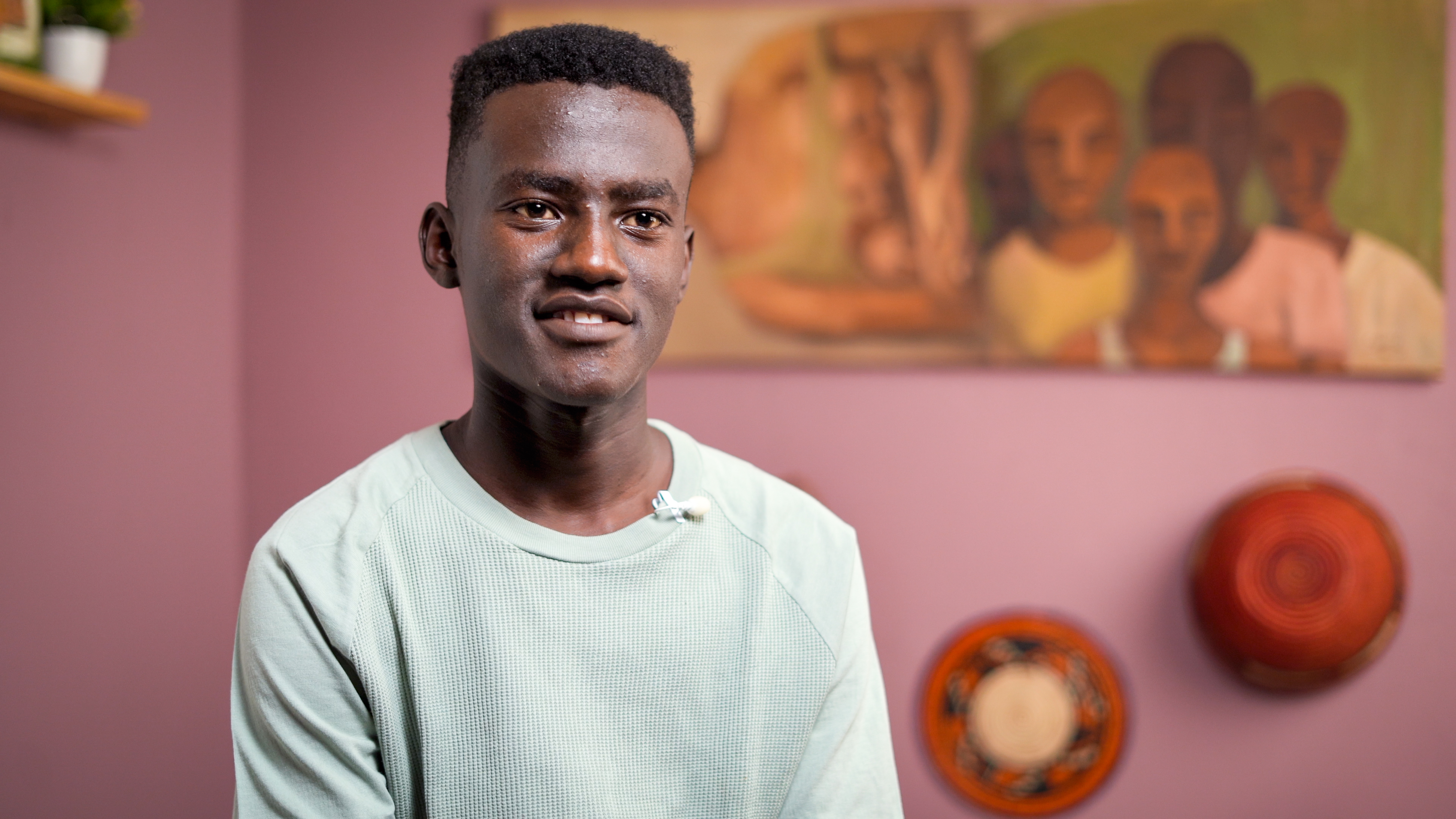
Education rights champion Makhtoum Abdalla speaks at TED Salon: Reimagine, presented in partnership with UNICEF. (Photo courtesy of TED)
Makhtoum Abdalla, education rights champion
Big idea: For children in refugee camps, schools and education are powerful tools of liberation. Makhtoum Abdalla, displaced as a child in Sudan and now living in a refugee camp, is using education as a springboard for his deepest dream: to ensure all children are educated and taught the skills needed to build a brighter future and become “captains of their destiny.”
How? Scoring one of the highest scores on South Sudan’s Grade 8 exam while living in the Otash refugee camp in Darfur, Abdalla caught the attention of UNICEF Sudan, who made him a Youth Advocate in 2020. He shares his goals of going to Columbia University to become a doctor and save children from malnutrition and hunger. As a youth advocate, he’s a voice for the ambitions of refugee kids like himself, championing easily accessible education so that everybody can tap into the world’s most powerful resource: knowledge.
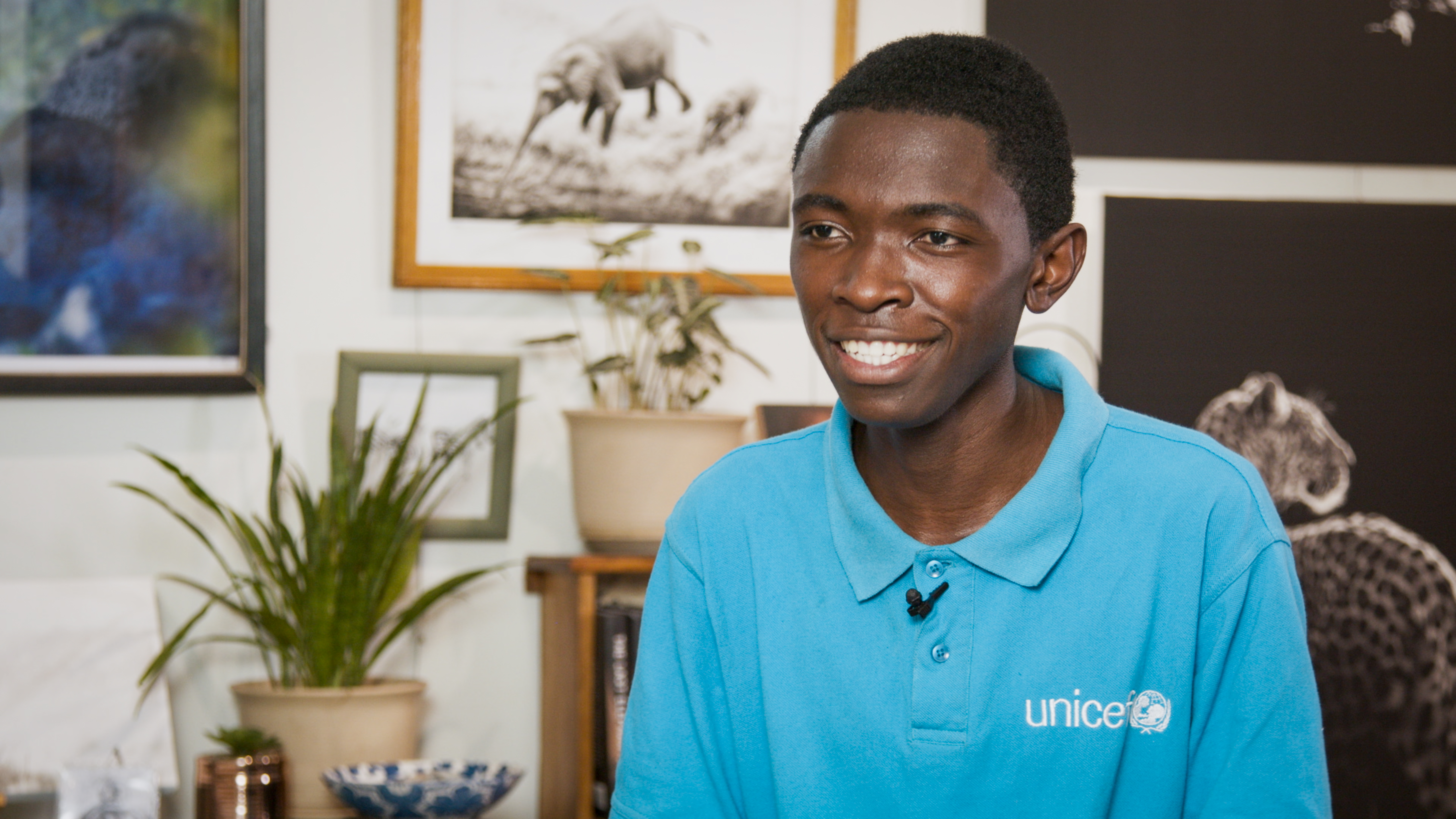
Climate justice advocate Nkosilathi Nyathi speaks at TED Salon: Reimagine, presented in partnership with UNICEF. (Photo courtesy of TED)
Nkosilathi Nyathi, climate justice advocate
Big idea: Although the climate crisis is largely caused by irresponsible adults in developed countries, it’s the children of developing nations — like Nkosilathi Nyathi’s Zimbabwe — that suffer from climate disaster the most. In a world where the clock is ticking off the minutes until climate disasters become unstoppable, we must involve everyone in finding solutions — including the children who suffer most acutely.
How? Since the age of 10, Nkosilathi Nyathi has engaged youth in the struggle to reduce emissions in Zimbabwe and to teach them that even small gestures can make a difference. Nyathi believes that a deeper commitment to climate education will give young people the tools they need to come up with their own solutions, and to help implement them once they’re discovered. But before that can happen, adults must listen — which is why Nyathi mobilizes youth to protest Zimbabwe’s climate policies, and why UNICEF has appointed him as a Youth Advocate to help spread his message to leaders all over the world.
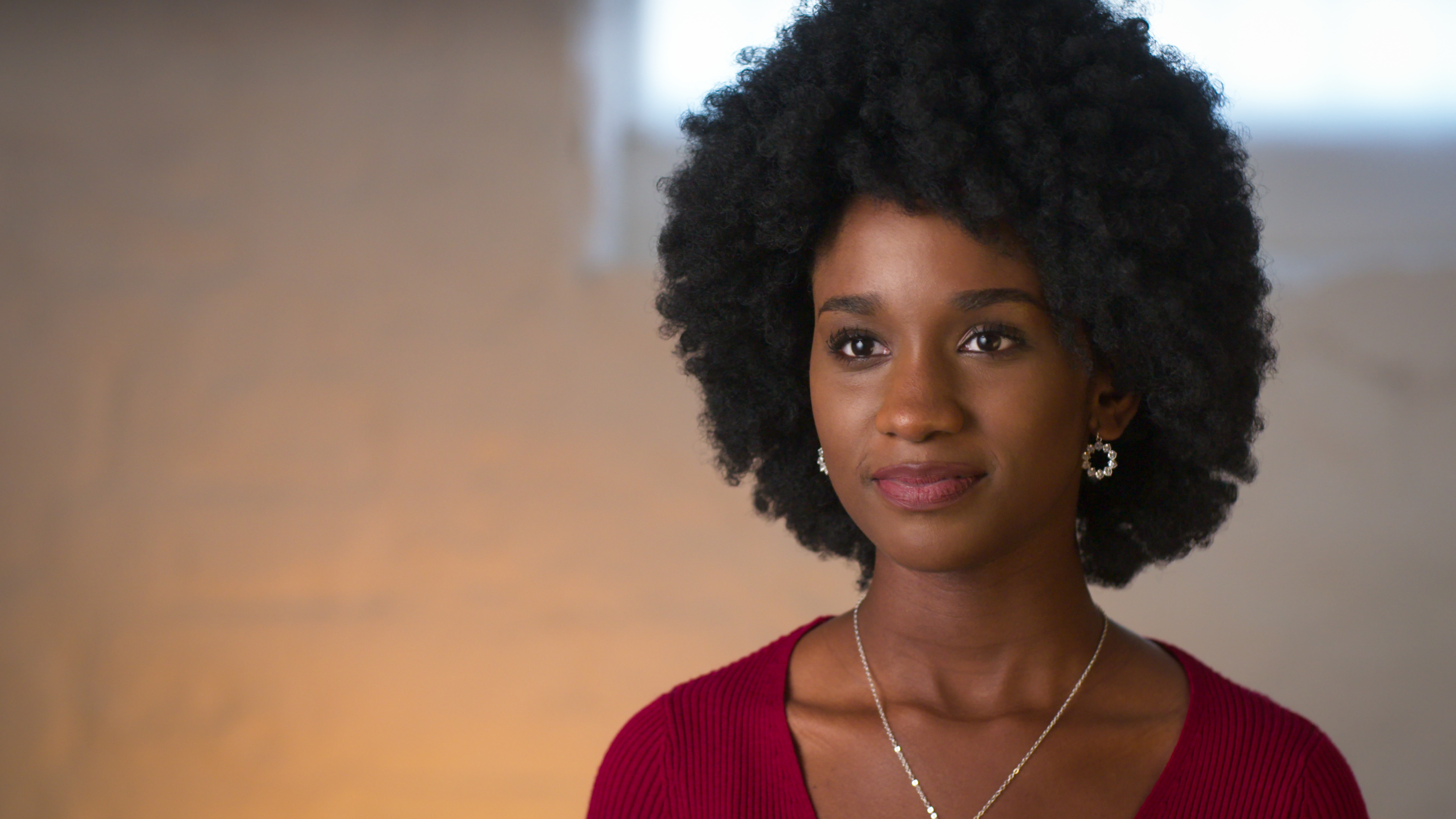
Family reunification visionary Elizabeth Zion speaks at TED Salon: Reimagine, presented in partnership with UNICEF. (Photo courtesy of TED)
Elizabeth Zion, family reunification visionary
Big idea: Fleeing religious persecution, Elizabeth Zion’s mother and siblings left Nigeria for Ireland — without her father, who to this day has been prevented from joining his family in the country where his daughter was born. Without him, Zion’s mother faced not only the struggles of raising five children as a single parent but also seven months of homelessness. Zion’s story is not unique — and each time that story is relived, its tragedy is underscored by the fact that it’s entirely avoidable.
How? Being raised by a family is a basic human right — one which is typically passed over by immigration regulations in countries the world over. Zion’s father has been trying to join her for 18 years — her entire life — and his absence, due entirely to red tape, has been devastating for her family. In order to keep families like hers together, Zion says, governments must not only commit to this right but also open up legal pathways — and reduce bureaucratic barriers — for families to enter their countries together, not one by one, whether they’re fleeing war, famine or religious persecution.
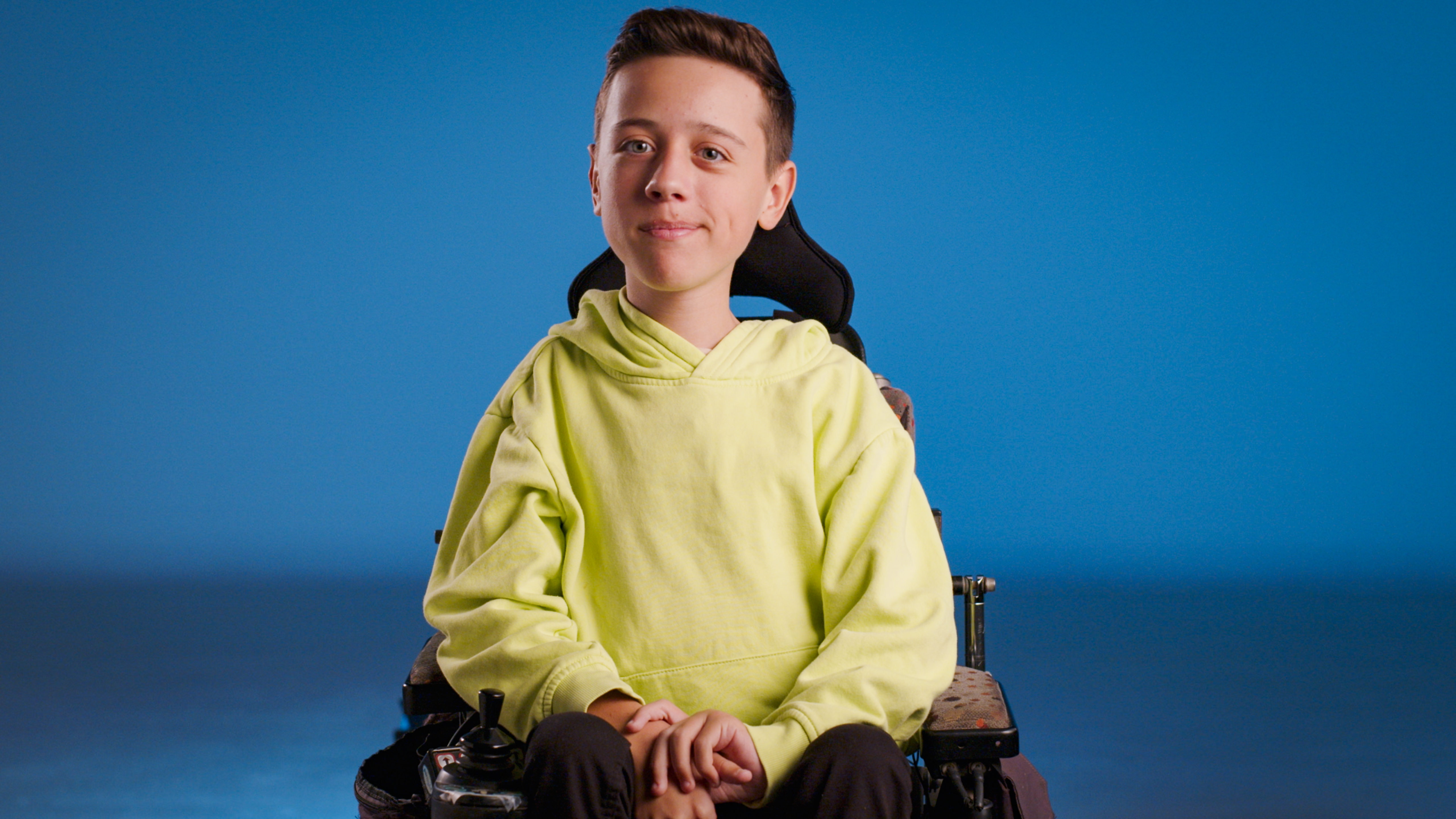
Accessibility champion Jane Velkovski speaks at TED Salon: Reimagine, presented in partnership with UNICEF. (Photo courtesy of TED)
Jane Velkovski, accessibility champion
Big idea: Freedom of movement is a human right. We should make assistive technology available to anyone who needs it.
How? “This chair is my legs — this chair is my life,” says 13-year-old disability advocate Jane Velkovski. Born with Spinal Muscular Atrophy (SMA) — a condition that causes his muscles to grow weak even as his mind grows stronger — he relies on a motorized wheelchair to provide the freedom and independence every teenager craves. Most kids can walk by the age of two, says Velkovski, but he wasn’t eligible for a government-provided power chair until the age of six. At age five, Velkovski says he got lucky when a family overseas sent him a power chair after their child with SMA outgrew it. But he worries about other kids who aren’t as fortunate. He argues that kids need to move independently from the earliest age possible, and policymakers must provide assistive technology to children with disabilities. “I see this world as a playground where people and governments are like a team,” he says. “We need to make sure everyone is able to play.”
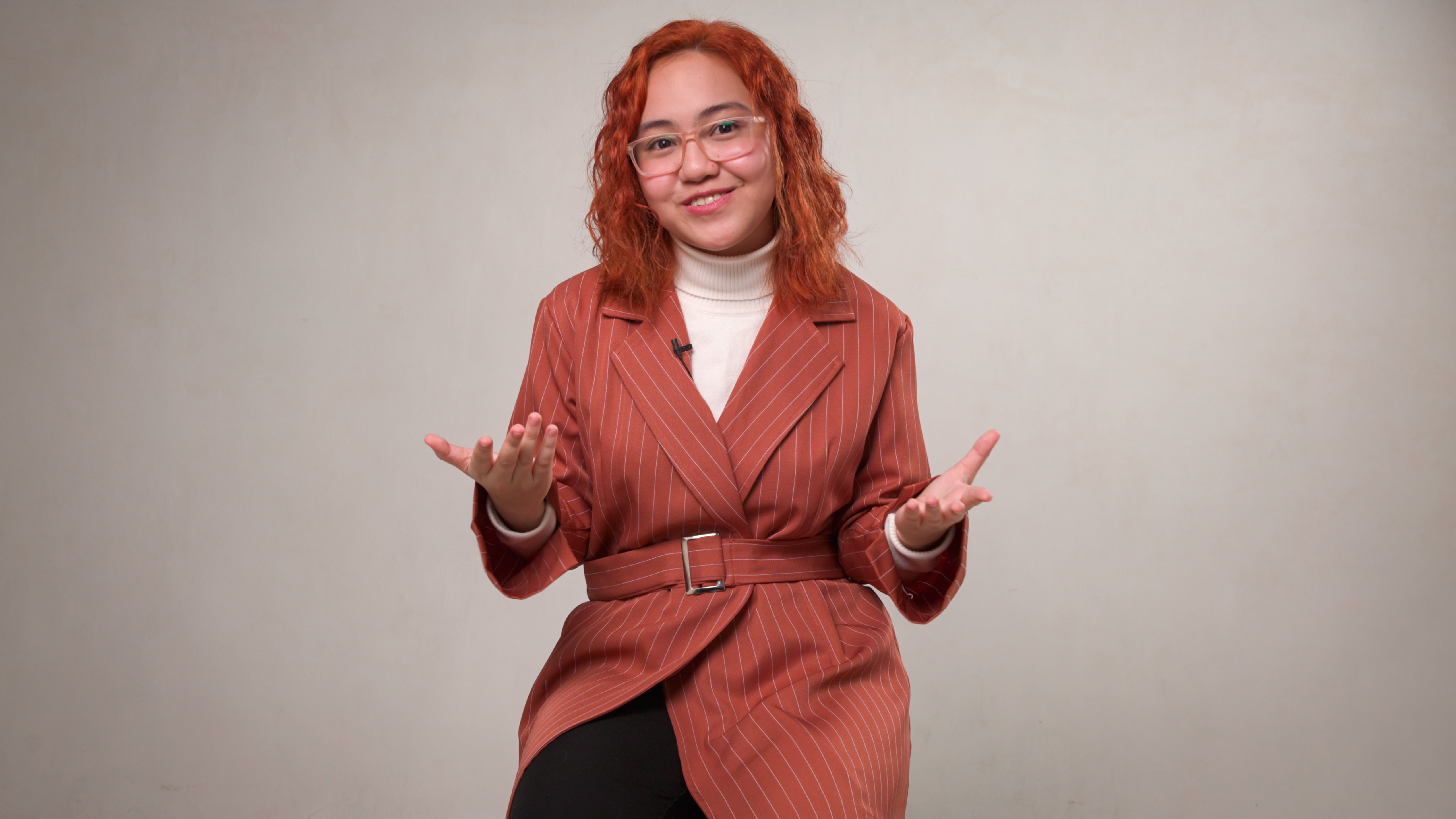
Mental well-being motivator Peachy Liv speaks at TED Salon: Reimagine, presented in partnership with UNICEF. (Photo courtesy of TED)
Peachy Liv, mental well-being motivator
Big idea: Social media is a powerful tool. It can amplify your voice and broadcast your ideas to a global audience, but it can also make it easier for others to criticize or attack you. We can — and must — make social media more user-friendly.
How? When Peachy Liv was 12 years old, she started creating videos for YouTube to share her ideas about education with other students her age. The platform helped her connect with millions of viewers but also made her vulnerable to harmful online criticism. If you have a strong voice online, she says, especially as a young person or as someone trying to make change in the world, people think you’re putting yourself on a pedestal — and they try to knock you down. According to Liv, more than one-third of teenagers have experienced a form of cyber-bullying. As individuals, she says, we can build our resilience to online negativity by practicing self-acceptance and seeking out support from friends and family or trusted mental-health professionals. We can also create better online spaces by committing to treat each other with kindness and respect. And if you ever need a break from social media, that’s OK, too. “Technology is my generation’s tool to fight for our future,” Liv says. “It should help us, not hurt us.”